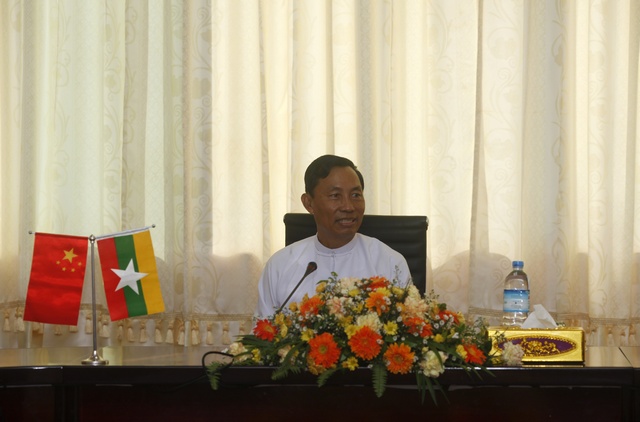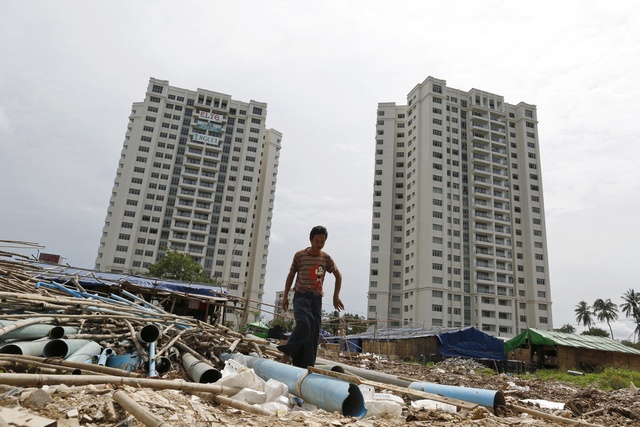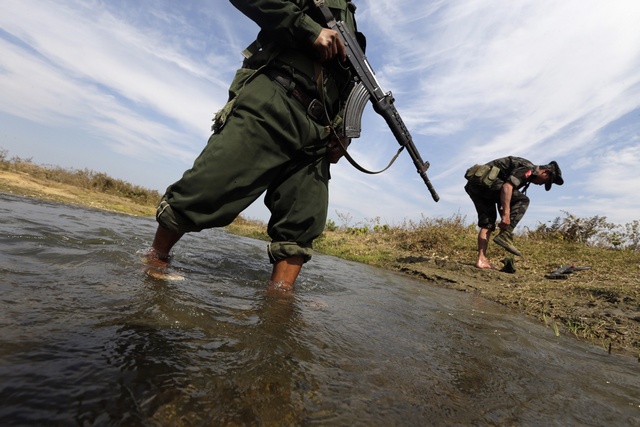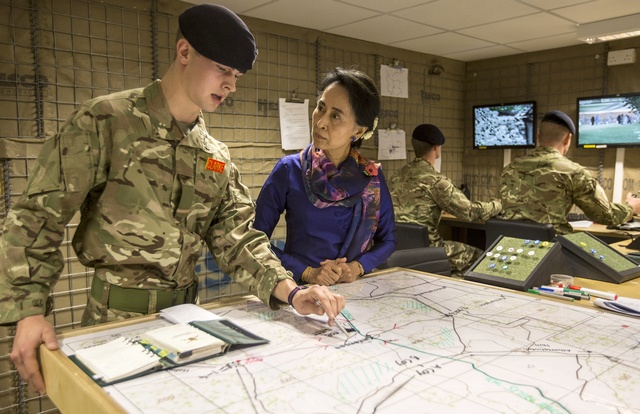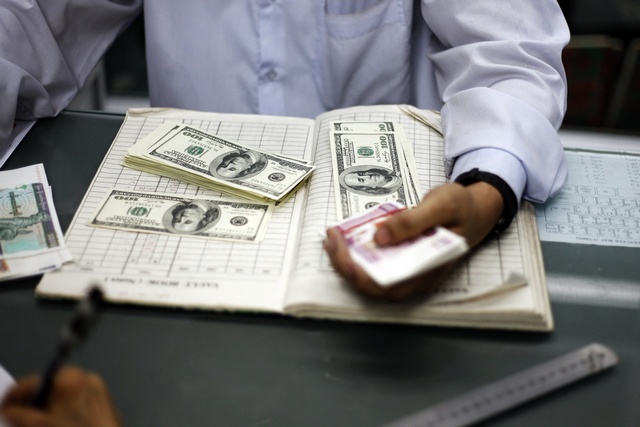Burma’s presidential spokesperson has rebuked parliamentary speaker Shwe Mann for telling a press conference that Thein Sein would not be seeking a second term in office.
Speaking to DVB on Monday, Ye Htut said that any remarks made by President Thein Sein to Shwe Mann were made in private and should not have been shared with the media.
“When there is a matter that the public should be informed about, the president will directly address the public himself. There is no need for a second person to do that,” he admonished.
“The president may have shared his views with the parliamentary speaker in a private meeting but he only meant to share it with him. According to international procedures, one cannot disclose this kind of information to the public without seeking permission from by the other party.”
Last week, Shwe Mann made international headlines for telling reporters that Thein Sein, who took office in March 2011, would not be running for president again in 2015.
“President U Thein Sein has told me he will not run for the president,” said the parliamentary speaker and leader of the ruling Union Solidarity and Development Party (USDP). “I think he meant what he said. He is not running in the election.”
Ye Htut said that he did not know why the speaker would have disclosed this information, adding that he must have had “his own reasons”.
Shwe Mann, who outranked Thein Sein during military rule in Burma, took over from him as leader of the military-backed USDP in May. They are described by many analysts as political adversaries and locked horns in a heated dispute over the role of Burma’s constitutional tribunal last year.
But Ye Htut denied reports of a power struggle between the president’s office and the parliamentary speaker.
[related]
“As we are practicing democracy system, one cannot really say this is a power struggle,” said Ye Htut. “The constitution encourages checks and balances so there might be times when we have to negotiate with each other – this is just a common scenario in the democratic system. But it would be wrong to call it a dispute.”
Shwe Mann also raised eyebrows for saying that former junta leader Than Shwe, who retired in 2011, was “watching developments in the country with keen interest” and worried that things “might go wrong”. But he insisted that the former dictator no longer played any role in political affairs.
Democracy icon and opposition leader Aung San Suu Kyi is also expected to run in Burma’s next general elections. However, the 2008 constitution currently bars her from becoming president on the basis of her foreign familial ties.
Thein Sein formed the USDP in April 2010 in order to run in the November election, which the party won by a landslide amid widespread reports of electoral fraud. Suu Kyi’s National League for Democracy famously boycotted the polls.
The USDP is estimated to have over 4 million supporters nation-wide and is dominated by former generals from the military junta.


